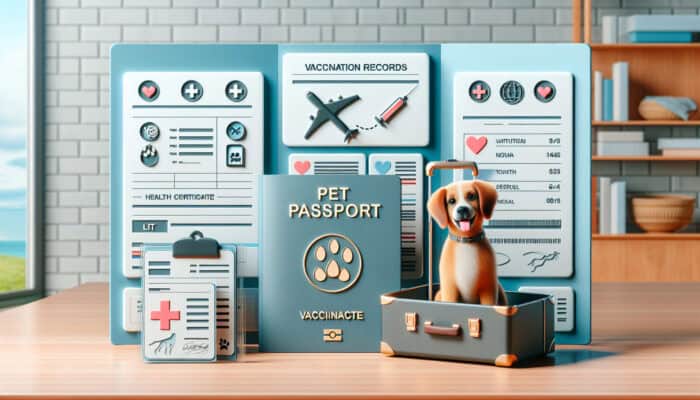Uncover the Underlying Causes of Social Anxiety in Chihuahuas
Key Influencers of Social Anxiety in Chihuahuas: Understanding Their Impact

The phenomenon of social anxiety in Chihuahuas can stem from a variety of sources, including genetic predispositions, early developmental experiences, and a lack of sufficient socialisation during critical growth periods. Given their diminutive size, Chihuahuas tend to be particularly sensitive to their environments, which can heighten their anxiety levels. Puppies that do not have the opportunity to interact with a diverse array of people and settings during their formative weeks may develop apprehensions towards unfamiliar experiences or individuals. Additionally, certain Chihuahuas may inherit anxious characteristics from their lineage, further amplifying their vulnerability to social anxiety.
Recognising the foundational causes of anxiety is crucial for formulating effective coping strategies. By comprehending a Chihuahua’s anxiety history, owners can customise their training and socialisation initiatives to better suit their dog’s unique requirements. Establishing a secure and nurturing environment where the Chihuahua feels protected can significantly alleviate anxiety triggers. For instance, a Chihuahua that has endured a tumultuous early life may necessitate a more gradual acclimatisation process to new experiences compared to one that has received adequate socialisation from an early age.
Identifying Symptoms of Social Anxiety in Chihuahuas: A Comprehensive Guide
Recognising the warning signals of social anxiety in Chihuahuas is essential for timely intervention and effective management. Typical manifestations of anxiety include excessive barking, trembling, and avoidance behaviours. Chihuahuas may bark excessively when they feel threatened or anxious, creating distress for both the dog and its owner. Trembling often indicates fear or anxiety and may occur when a Chihuahua encounters new situations or stimuli. Furthermore, some Chihuahuas may opt to hide or avoid specific individuals or environments altogether, signalling discomfort and a need for reassurance.
Key indicators to observe include:
- Excessive barking in unfamiliar situations
- Trembling or shaking under stress
- Avoidance of social interactions
- Clinginess to their owner
- Destructive behaviour when left alone
- Loss of appetite during stressful periods
Early recognition of these signs can lead to improved management strategies, ultimately enhancing a Chihuahua’s overall quality of life and emotional stability.
The Impact of Social Anxiety on Chihuahuas’ Overall Health and Happiness
Social anxiety can significantly impair a Chihuahua’s quality of life, leading to stress-related health complications and various behavioural challenges. When a Chihuahua grapples with anxiety, it may result in elevated stress levels, which can precipitate physical health issues such as gastrointestinal disturbances or a weakened immune system. Moreover, behavioural challenges such as aggression, fear biting, or incessant barking may emerge, complicating daily life for both the Chihuahua and its human companions.
Addressing social anxiety requires more than merely managing behaviours; it also involves enhancing the dog’s overall well-being. If left unattended, anxiety can engender a detrimental cycle of stress and fear that escalates over time. For example, a frightened Chihuahua may become increasingly isolated as it shuns situations that trigger anxiety, leading to further disconnection. Conversely, tackling these challenges can empower Chihuahuas to cultivate confidence, enabling them to participate more fully in activities and social interactions, thereby improving their happiness and overall quality of life.
Proven Techniques for Supporting Chihuahuas with Social Anxiety

Practical Techniques for Assisting Chihuahuas in Overcoming Anxiety
Experts advocate various effective strategies to help Chihuahuas conquer social anxiety. Gradual exposure to social environments is crucial; this involves introducing your Chihuahua to novel places and individuals in a controlled manner. For instance, start by taking your Chihuahua to quiet parks during off-peak hours before advancing to busier locations. Utilising positive reinforcement techniques is equally important; rewarding your Chihuahua with treats and praise for calm behaviour can foster confidence over time.
Real-life examples of successful strategies can provide valuable insights. For example, one owner discovered that regularly inviting a friend over allowed their Chihuahua to acclimatise to new people in a familiar environment, progressively diminishing its anxiety levels. Additionally, enrolling in puppy socialisation classes specifically tailored for anxious dogs can provide structured opportunities for interaction, guided by professionals. Consistently applying these techniques can lead to meaningful improvements in managing anxiety in Chihuahuas over time.
Ways Owners Can Support Their Anxious Chihuahuas Effectively
Owners play a crucial role in aiding their Chihuahuas as they navigate the complexities of social anxiety. Providing a safe and nurturing environment is essential; this involves creating a space where the Chihuahua feels secure and comfortable. Establishing consistent routines is also advantageous; dogs thrive on predictability, and knowing what to expect can significantly allay anxiety. For instance, implementing a regular schedule for feeding, walks, and playtime can instil a sense of stability in the Chihuahua.
Patience is another vital aspect of effective support. Owners must recognise that overcoming social anxiety is a gradual journey, and progress may be slow. Celebrating small triumphs, such as a successful interaction with a new person, can uplift both the owner and the Chihuahua. Expert evaluations suggest that owner involvement in their Chihuahua’s development is critical; the bond fostered through consistent support creates an environment where the Chihuahua feels safe enough to explore new experiences.
How Professional Assistance Can Enhance Management of Chihuahua Anxiety

Seeking professional assistance can be a highly effective strategy for managing a Chihuahua’s social anxiety. Professional trainers and veterinarians can offer tailored plans and medications specific to the dog’s needs. For instance, a trainer may recommend particular training exercises aimed at desensitising the Chihuahua to its anxiety triggers, while a veterinarian might suggest anxiety-relief medications for more severe cases.
Taking proactive steps to seek professional help involves researching qualified trainers who specialise in anxiety-related issues and scheduling veterinary consultations for a comprehensive evaluation of your Chihuahua’s health. Ensuring that the trainer or veterinarian has a reputable background and positive testimonials can build trust and confidence in the process. Collaborating with professionals can enhance the owner’s understanding of their Chihuahua’s needs, leading to more effective anxiety management strategies.
Implementing Socialisation Techniques to Reduce Anxiety Effectively
Applying socialisation techniques can significantly alleviate anxiety in Chihuahuas, particularly when initiated at a young age. Experts recommend controlled exposure to a variety of environments, sounds, and people. This involves gradually introducing the Chihuahua to diverse stimuli, such as car rides, different types of people, and varied settings, ensuring these experiences remain positive and rewarding.
Case studies reveal that Chihuahuas participating in structured socialisation programmes exhibit reduced anxiety levels over time. A notable example involved a Chihuahua that initially feared strangers; through gradual exposure sessions, the dog learned to associate the presence of new individuals with positive experiences, such as treats and playtime. Keeping socialisation sessions brief and enjoyable is essential, allowing the Chihuahua to build confidence without feeling overwhelmed or stressed.
Indicators of Improvement in Chihuahua Social Anxiety
As Chihuahuas progress in their treatment for social anxiety, several indicators can signify improvement. Owners should look for increased confidence in social settings, including a willingness to engage with new people or environments without displaying distress. Decreased avoidance behaviours, where the Chihuahua opts to interact rather than retreat, represent another positive signal. Additionally, greater engagement with other dogs or people, such as playing or exhibiting curiosity, reflects enhanced comfort levels.
Experts emphasise the importance of monitoring progress and celebrating small victories throughout the treatment journey. For instance, if a Chihuahua that previously hid when guests arrived now greets them at the door, this marks significant improvement. Maintaining a journal to track behaviours and noteworthy changes can help owners stay motivated and informed about their Chihuahua’s progress in overcoming anxiety.
Effective Techniques for Reducing Social Anxiety in Chihuahuas
Most Effective Socialisation Methods for Anxious Chihuahuas
Implementing effective socialisation methods is crucial for alleviating anxiety in Chihuahuas. Gradual exposure to new environments and people is necessary for desensitising anxious behaviour. Socialisation classes specifically designed for anxious dogs can provide a controlled environment for these exposures, facilitating positive interactions.
Key socialisation techniques include:
- Controlled introductions to new people and environments
- Puppy playgroups for safe interactions
- Short trips to various locations
- Supervised interactions with other dogs
- Gradual exposure to diverse sights and sounds
- Creating positive associations with new experiences through treats
By consistently applying these techniques, owners can assist their Chihuahuas in building confidence over time, effectively mitigating the impacts of social anxiety and enhancing their overall well-being.
Utilising Positive Reinforcement for Confidence Building in Chihuahuas
Positive reinforcement is a pivotal strategy for bolstering confidence in Chihuahuas facing social anxiety. Rewarding calm behaviour with treats and praise encourages the desired actions while helping the dog associate positive outcomes with previously anxiety-inducing situations. For instance, if a Chihuahua remains calm during a park visit, offering treats can reinforce this behaviour and promote similar reactions in future outings.
Maintaining consistency in positive reinforcement is vital; dogs thrive on repetition, and understanding that calm behaviour leads to rewards can significantly influence their mindset. Gradually increasing the complexity of situations—such as introducing more people or more stimulating environments while continuing positive reinforcement techniques—further enhances the Chihuahua’s confidence and resilience in social contexts.
The Benefits of Desensitisation Techniques for Anxious Chihuahuas
Desensitisation is a technique involving the gradual introduction of anxiety triggers to the Chihuahua in a controlled manner. The aim is to diminish the fear response over time. This process begins by identifying specific triggers that provoke anxiety, whether they be loud noises, unfamiliar individuals, or specific environments.
Once triggers are identified, the Chihuahua is exposed to these stimuli at a low intensity. For example, if a Chihuahua is apprehensive about strangers, the owner might start by having a friend stand at a distance while offering treats. Gradually, as the dog becomes more comfortable, the friend can move closer, continuing to reward calm behaviour. This method effectively aids the Chihuahua in developing a more relaxed response towards previously anxiety-inducing situations, fostering long-term improvement in behaviour.
Daily Routines to Support Chihuahuas Dealing with Anxiety
Creating a Calming Morning Routine for Anxious Chihuahuas
Establishing a calming morning routine can set a positive tone for Chihuahuas experiencing social anxiety. Engaging in gentle activities such as quiet play or relaxed cuddle sessions can facilitate a smoother transition into the day’s demands. This nurturing practice fosters a sense of security and love, cultivating a positive mindset for the Chihuahua as it embarks on daily activities.
Incorporating structured activities, such as a brief, calming walk, can also elevate the dog’s mood. A morning walk not only provides the Chihuahua with an opportunity to relieve itself but also allows for controlled exposure to the surroundings. The key is to maintain a low-stress and predictable morning routine, which can help alleviate anxiety throughout the day and contribute to a happier disposition.
Relaxing Evening Activities to Help Reduce Chihuahua Anxiety
Engaging in relaxing evening activities is essential for helping Chihuahuas unwind and decrease their anxiety levels after a busy day. Activities such as gentle walks or soothing massages can assist the dog in transitioning from the hectic pace of the day to a state of relaxation. These evening rituals foster a sense of safety and tranquillity as the day comes to a close.
Calming evening activities may include:
- Gentle walks in serene areas
- Massage or gentle petting sessions
- Interactive toys that promote calm play
- Calming music or ambient sounds
Integrating these activities into the evening routine can help the Chihuahua establish a comforting atmosphere, ultimately reducing anxiety and leading to a more restful night’s sleep.
The Importance of Consistency in Daily Schedules for Anxious Chihuahuas
Maintaining consistency in daily schedules is vital for helping Chihuahuas feel secure and alleviate anxiety. Predictable routines significantly contribute to a Chihuahua’s emotional well-being. Having set times for feeding, walks, and play creates a sense of stability and comfort, enabling the Chihuahua to anticipate daily activities and reducing feelings of uncertainty.
A reliable routine can profoundly impact a Chihuahua’s anxiety levels. For instance, if a dog knows it will go for a walk at a specific time each day, it can learn to relax and look forward to that experience. This predictability reduces anxiety surrounding uncertainty and enhances the overall quality of life for the Chihuahua, making daily interactions more enjoyable for both the dog and its owner.
Incorporating Midday Breaks for Relaxation and Calmness
Taking short breaks throughout the day for activities such as napping or quiet play can help maintain a calm state in Chihuahuas and significantly lower anxiety levels. Midday breaks allow the Chihuahua to recharge, especially after engaging in stimulating activities or socialisation experiences, which can be taxing for anxious dogs.
Integrating relaxation periods into the daily routine promotes a balanced lifestyle that is essential for emotional stability. Providing a designated quiet space or cozy bed where the Chihuahua can retreat and relax during these breaks reinforces the idea that it is safe to unwind. By doing so, owners can effectively manage their Chihuahua’s anxiety levels throughout the day, contributing to a more harmonious home environment.
The Role of Nutrition in Managing Chihuahua Social Anxiety
How Diet Influences Anxiety Levels in Chihuahuas
Diet plays a crucial role in a Chihuahua’s mood and anxiety levels. Certain foods can either exacerbate or alleviate anxiety, significantly influencing the overall emotional state of the Chihuahua. A balanced diet rich in nutrients, including omega-3 fatty acids, can promote better mental health and emotional stability. Foods high in sugar or unhealthy fillers may create fluctuations in energy levels, contributing to heightened anxiety.
Incorporating calming ingredients, such as those found in specialised dog food formulations or holistic diets, can aid in managing stress effectively. For instance, foods rich in antioxidants and vitamins can promote overall well-being and support a positive mood. Understanding the relationship between diet and a Chihuahua’s anxiety is essential for owners seeking to effectively manage their pet’s emotional health and ensure they thrive in a nurturing environment.
Supplements that May Help Reduce Anxiety in Chihuahuas
Supplements, such as CBD oil or calming chews, can be beneficial for Chihuahuas experiencing anxiety. These supplements often contain natural ingredients known for their calming effects, offering an alternative or supplementary approach to traditional anxiety management strategies. Before introducing any supplements into your Chihuahua’s diet, consulting with a veterinarian is crucial to ensure safety and suitability for your pet’s specific needs.
Veterinarians can provide recommendations on specific products or formulations designed to meet the individual needs of the Chihuahua. It is essential to monitor the Chihuahua’s response to any new supplements, noting any changes in anxiety levels or behaviour. Regular communication with a veterinarian can empower owners to make informed decisions regarding supplement usage, enhancing the effectiveness of their overall anxiety management strategies.
Foods to Avoid for Minimising Anxiety in Chihuahuas
Avoiding certain foods can effectively minimise anxiety in Chihuahuas. Foods high in sugar or caffeine can lead to increased anxiety and hyperactivity, making it crucial for owners to carefully read labels. Additionally, processed foods containing artificial preservatives or fillers may not provide the necessary nutrients for emotional stability, potentially exacerbating anxiety symptoms.
Consulting a veterinarian can offer guidance on dietary adjustments that may enhance anxiety management. Understanding which ingredients to avoid helps owners make informed decisions that can positively influence their Chihuahua’s emotional health and overall quality of life.
Effective Strategies for Assisting Chihuahuas with Social Anxiety
The Benefits of Behavioural Therapy for Anxious Chihuahuas
Behavioural therapy can provide significant advantages for Chihuahuas struggling with social anxiety. This approach addresses the underlying issues causing anxiety and employs techniques like counter-conditioning to modify negative associations with specific stimuli. For example, if a Chihuahua fears other dogs, behavioural therapy may involve gradually introducing the Chihuahua to calm, friendly dogs in a controlled environment, thereby promoting positive interactions.
Expert insights into the effectiveness of behavioural therapy suggest that these structured interventions can lead to lasting improvements in anxiety levels. By collaborating with a professional, owners can gain valuable insights into their Chihuahua’s specific triggers and develop tailored strategies that address their needs. The consistent application of behavioural techniques can significantly enhance the Chihuahua’s coping mechanisms and overall emotional resilience.
The Role of Exercise in Managing Chihuahua Anxiety
Regular exercise is essential for alleviating stress and anxiety in Chihuahuas. Engaging in physical activities helps release pent-up energy, leading to improved mood and mental clarity. Activities such as short walks, play sessions, or interactive games provide vital outlets for both physical and mental stimulation, which is crucial for an anxious dog.
Real-world examples of exercise routines can vary but often include structured playdates with other dogs, agility training, or simple fetch sessions. Incorporating these activities into daily routines provides Chihuahuas with both physical exercise and socialisation opportunities, effectively reducing anxiety levels while promoting overall well-being and happiness.
The Importance of Patience and Consistency in Managing Anxiety
Patience and consistency are critical when assisting Chihuahuas in overcoming social anxiety. The journey to overcoming anxiety is not immediate; it requires a long-term commitment to implementing strategies and techniques that promote gradual improvement. Owners must be prepared for setbacks and recognise that progress may be slow.
Consistency in approach reinforces the Chihuahua’s learning and fosters trust between the dog and its owner. By maintaining a steady routine and uniformly applying techniques, owners create a safe environment for their Chihuahua to explore and develop. This long-term commitment is vital for achieving meaningful changes in the Chihuahua’s behaviour and anxiety levels, ultimately contributing to a healthier and happier life for the dog.
Creating a Safe Environment for Anxious Chihuahuas
Characteristics of a Safe Home Environment for Anxious Dogs
Establishing a safe environment for anxious Chihuahuas is vital for enhancing their emotional well-being. A safe space should provide quiet areas where the Chihuahua can retreat when feeling overwhelmed. Offering comfortable bedding and soft toys can foster a sense of security, assisting the Chihuahua in relaxing and feeling at ease in their home.
Minimising stressors within the home environment is equally important. This might include setting boundaries around high-traffic areas, reducing loud noises, and ensuring a calm atmosphere. Recognising the elements that contribute to a safe home can significantly improve the comfort levels of anxious Chihuahuas, enhancing their ability to cope with stressors they encounter in daily life.
Gradually Introducing New Elements to Prevent Anxiety
Introducing new elements, whether they be people, pets, or objects, requires a careful approach to avoid triggering anxiety in Chihuahuas. Gradual introductions are key; rather than overwhelming the dog with new stimuli, owners should take their time, allowing the Chihuahua to acclimatise to new elements slowly and steadily.
For instance, when introducing a new pet into the home, it’s beneficial to keep them separated initially, allowing the Chihuahua to observe the new addition from a safe distance. Gradually, supervised introductions can occur, ensuring that positive associations are formed. This methodical approach helps prevent overwhelming the Chihuahua, minimising the likelihood of anxious reactions and fostering a smoother transition.
The Importance of Familiarity in Reducing Anxiety
Familiar surroundings and routines provide immense comfort, helping alleviate anxiety in Chihuahuas. Maintaining a consistent environment allows the dog to feel secure, as familiarity often breeds confidence. Sustaining stable routines for feeding, walks, and playtime further enhances this sense of familiarity, creating a predictable and comforting atmosphere for the dog.
When changes occur, whether due to new furniture or a temporary relocation, it’s crucial to offer the Chihuahua familiar items like their bedding or favourite toys. This practice can help mitigate anxiety during transitional periods, allowing the Chihuahua to sustain a sense of stability, even in the face of change, and supporting their emotional health.
Monitoring and Adapting Chihuahua Anxiety Management Strategies
Effectively Tracking Progress in Managing Anxiety
Monitoring progress in managing anxiety is essential for understanding the effectiveness of the strategies implemented for your Chihuahua. Keeping a journal of behaviours and reactions enables owners to identify patterns and discern when specific triggers elicit anxiety. Regular evaluations of the Chihuahua’s behaviour—including both positive changes and setbacks—are critical for making informed adjustments to management strategies.
Documenting significant events, such as successful socialisation sessions or instances where the Chihuahua displayed newfound confidence, can inspire both the owner and the dog. This progress tracking provides a clear overview of the most effective strategies and highlights areas needing improvement, ensuring that the dog receives the best possible support in overcoming anxiety.
When to Adjust Your Approach to Managing Anxiety
Adjusting your approach to anxiety management may become necessary if progress stalls or new challenges arise. Flexibility is vital; what works for one Chihuahua may not yield results for another, and individual needs may change over time. If the Chihuahua exhibits signs of heightened anxiety or if previously effective techniques seem less beneficial, reassessing the current strategies becomes imperative.
Consulting with a professional trainer or veterinarian can provide valuable insights into necessary adjustments. This collaborative approach ensures that the management plan remains effective and relevant to the Chihuahua’s current needs, enabling the owner to provide the best possible support for their anxious pet.
The Importance of Regular Veterinary Check-Ups in Anxiety Management
Regular veterinary check-ups are crucial for addressing any underlying health issues that may contribute to anxiety. A veterinarian can assess the Chihuahua’s overall health and identify medical conditions that could exacerbate anxiety, such as pain or illness. Consistent monitoring allows owners to stay informed about their Chihuahua’s health, enabling them to adapt their anxiety management strategies as needed for optimal care.
Incorporating regular vet visits into the anxiety management plan ensures comprehensive care for the Chihuahua. By maintaining open communication with the veterinarian, owners can gain valuable insights into effective treatments, dietary recommendations, and behavioural strategies specifically tailored for their anxious Chihuahua, leading to improved health and happiness.
Frequently Asked Questions Regarding Chihuahua Social Anxiety
What Are Common Signs of Social Anxiety in Chihuahuas?
Common signs include excessive barking, trembling, avoidance behaviours, and clinginess to owners. Early recognition of these symptoms is crucial for effective management and support.
Can Socialisation Significantly Reduce Anxiety in My Chihuahua?
Yes, gradual socialisation can greatly alleviate anxiety by exposing your Chihuahua to new environments and experiences in a controlled manner, fostering confidence and comfort.
How Can I Create a Safe Environment for My Anxious Chihuahua?
Create a safe environment by establishing quiet spaces, providing comfortable bedding, and minimising stressors such as loud noises or excessive activity within the home, ensuring a tranquil atmosphere.
What Effect Does Diet Have on Managing Chihuahua Anxiety?
Diet plays an important role in a Chihuahua’s mood; a balanced diet with calming ingredients can assist in managing stress and anxiety levels, promoting overall emotional well-being.
Are There Supplements That Can Help My Chihuahua’s Anxiety?
Yes, supplements like CBD oil or calming chews may be beneficial, but should always be discussed with a veterinarian prior to use to ensure safety and effectiveness.
How Often Should I Take My Chihuahua to the Vet for Anxiety Management?
Regular veterinary check-ups are essential, ideally every 6-12 months, or more frequently if your Chihuahua’s anxiety levels change or worsen, ensuring ongoing health and support.
What Techniques Are Effective for Socialising an Anxious Chihuahua?
Effective techniques include controlled introductions, enrolling in puppy socialisation classes, and gradually exposing the dog to new stimuli while rewarding calm behaviour, enhancing social skills.
How Can I Track My Chihuahua’s Progress in Anxiety Management?
Keep a journal documenting behaviours, reactions, and noteworthy successes or setbacks to effectively monitor progress over time, facilitating informed adjustments to management strategies.
What Should I Do If My Chihuahua Exhibits Increased Anxiety?
If anxiety worsens, reassess your strategies, consider consulting a professional trainer or veterinarian, and remain adaptable in your approach to ensure your Chihuahua receives the best support.
How Long Does It Usually Take for Anxiety Management Strategies to Show Results?
The duration varies; consistent application of strategies over weeks or months is often needed to observe significant improvements in anxiety levels and overall behaviour.
Connect with us on Facebook!
The Article Chihuahua Social Anxiety Help: Effective Strategies First Published On https://elgatoencasa.com
The Article Chihuahua Social Anxiety: Effective Strategies for Relief Was Found On https://limitsofstrategy.com



